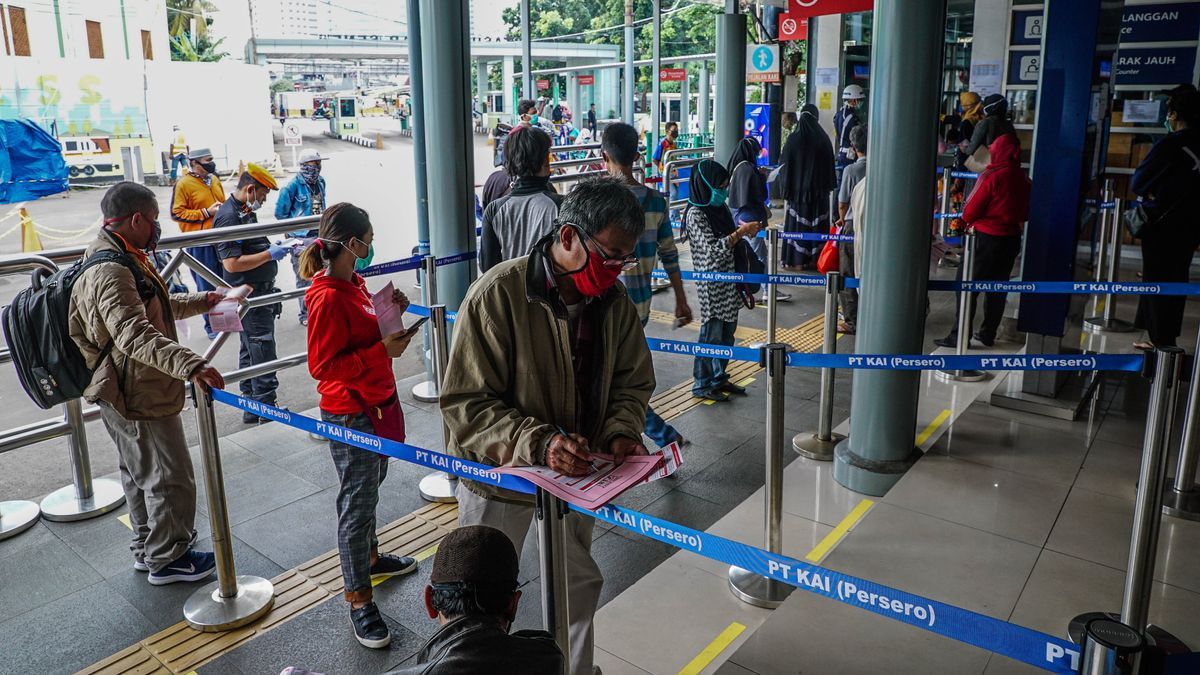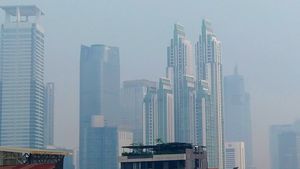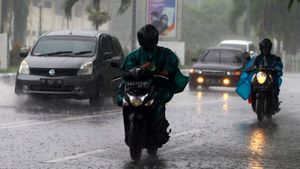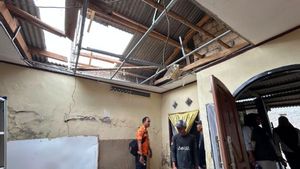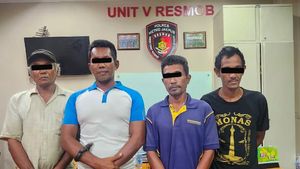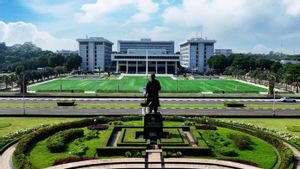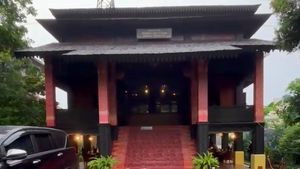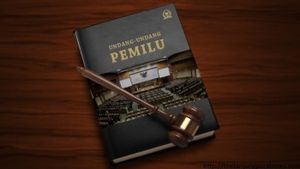JAKARTA - The phenomenon of illegal transportation of introducing travelers to travelers in the month of Ramadan is back on the rise this year. In the homecoming season, which has the COVID-19 pandemic, all homecoming transportation has been banned. However, they have a new mode.
Director General of Land Transportation Budi Setiadi explained that most of them use buses or cars that carry goods (logistics). The mode is done by smuggling passengers inside, then covering them with goods on the outside. It is as if these transports only carry goods.
"The smuggling transport for homecoming passengers exists because public transport is not operating. Unfortunately, the market (for travelers) is still there, so they use illegal black plate transportation to play. But, so far there has been police action in the field," Budi told VOI, Sunday. , May 3.
Transportation observer from the Indonesian Transportation Society (MTI), Djoko Setijowarno, said that this phenomenon is actually not new. However, what must be emphasized is not only action in the field.
Djoko said that the government must also find a way out of this problem. In fact, there are still many migrants who force homecoming to their hometowns because they cannot do much to sustain their daily needs.
Many of the migrant communities in the Jabodetabek area, said Djoko, have not received social assistance (bansos) from the central and regional governments which is currently being distributed. This is what made them decide to go home to their hometown.
"In fact, their daily needs are still ongoing. The supply of life is running low. Therefore, choosing to return to their hometown is felt to be safer and more comfortable. Instead of living overseas, they cannot eat, who knows how long," said Djoko when confirmed by VOI.
The solution that the government can do now is not only blocking road access by police officers. The government can hold a crisis center to accommodate the problems of overseas residents in the Jabodetabek area who are experiencing financial capacity problems.
However, if the handling is only borne by local governments in the Jabodetabek area, this is quite burdensome. Djoko said that cooperation was needed between the Jabodetabek regional government, the central government, and the regional governments from which these migrants came from.
"So, not only prohibiting homecoming, but they must provide a way out so that they stay at home overseas with life insurance until the COVID-19 pandemic subsides. Because many of them have no money to eat daily and pay rent. or contract accommodation, "he said.
In addition, local regional officials can build social solidarity among the community to keep underprivileged members of the community in the Jabodetabek area from going home.
"Could there be an effort to provide assistance to migrants like this, so that life while abroad can still be awakened," he explained.
For information, the regulation on the prohibition of going home during the COVID-19 pandemic has led to the emergence of illegal travel that offers delivery services to hometowns without being noticed by officers at the checkpoint. These offers are widely circulated on various social media.
The police caught this dark mode of travel when officers on duty at the PAM Post in Kedung Waringin, Bekasi, found 10 people trying to go home using travel services, on Wednesday, April 29, evening.
Polda Metro Jaya Traffic Directorate Director Kombes Sambodo Purnomo Yogo said the mode was revealed because of the suspicion of officers at the checkpoint. This is because this travel car uses black plates to make it look like a private vehicle.
Departing from this suspicion, the car was stopped and checked. From there it is known that there were several people sitting in the passenger seat.
When asked some questions, they did not have the same goal. So, it violated the existing rules and they were all asked for further information.
"Of the 2 vehicles, a total of 8 passengers and not including the driver. The first car has 6 people and the second 4 people," said Sambodo, Friday, May 1.
From the results of the examination, said Sambodo, the passengers admitted to using travel and paying around Rp. 300 thousand - Rp. 500 thousand to the travel company. In fact, they were promised that they would be able to get to their hometowns, even though there was a ban from the government.
"They were promised to cross the guard post and go home to their hometowns in Central Java," said Sambodo.
The English, Chinese, Japanese, Arabic, and French versions are automatically generated by the AI. So there may still be inaccuracies in translating, please always see Indonesian as our main language. (system supported by DigitalSiber.id)
